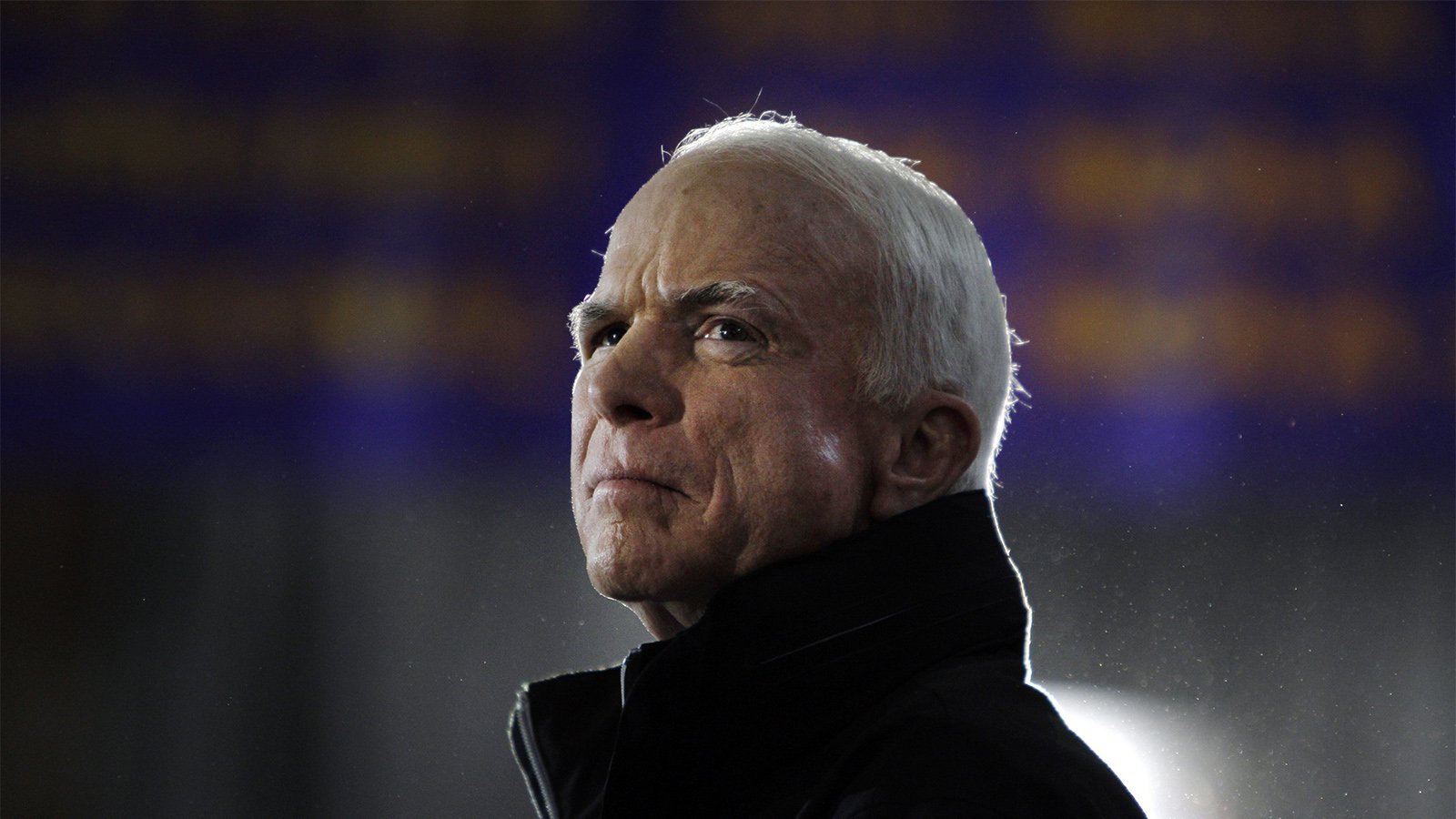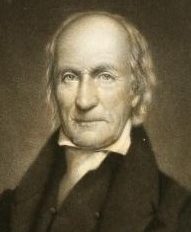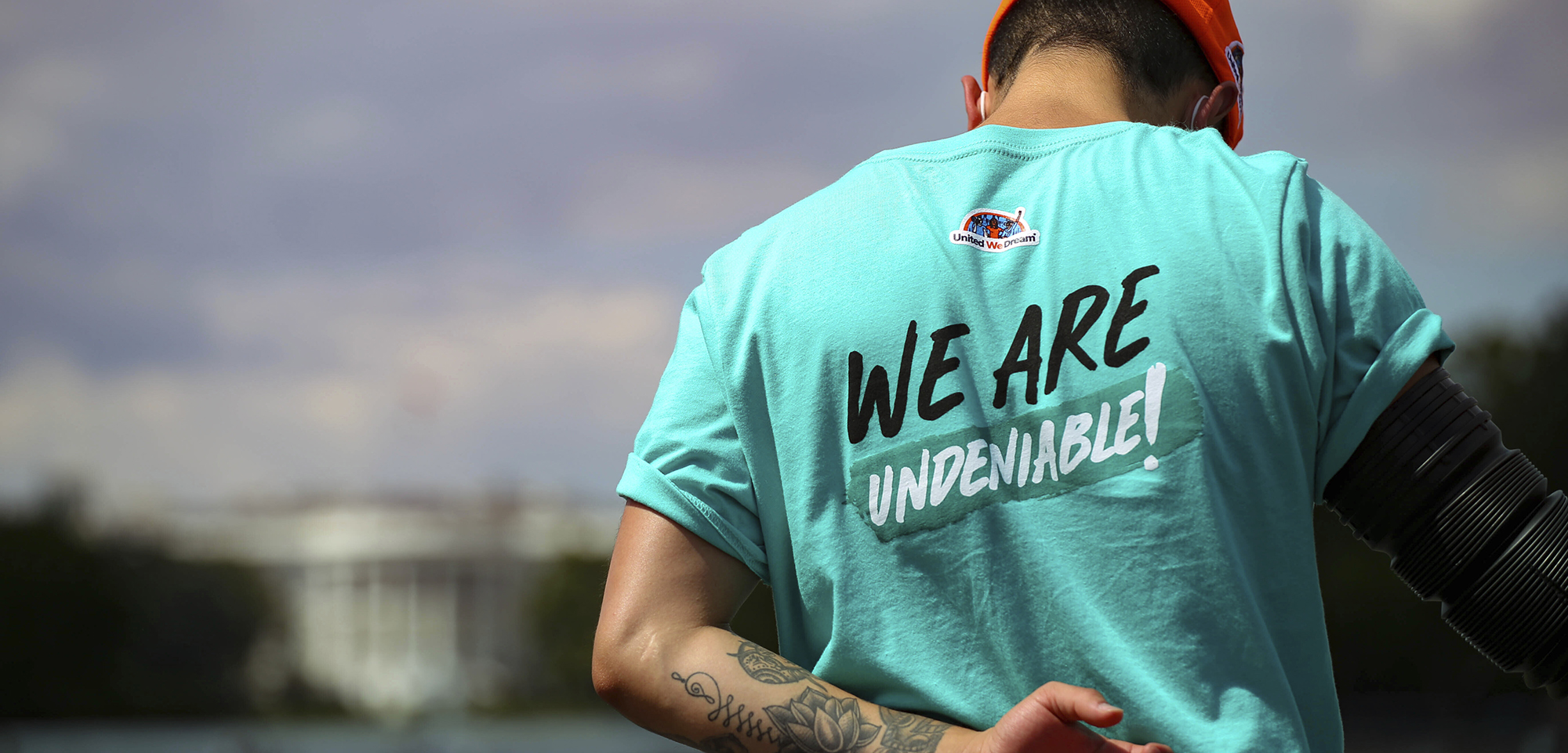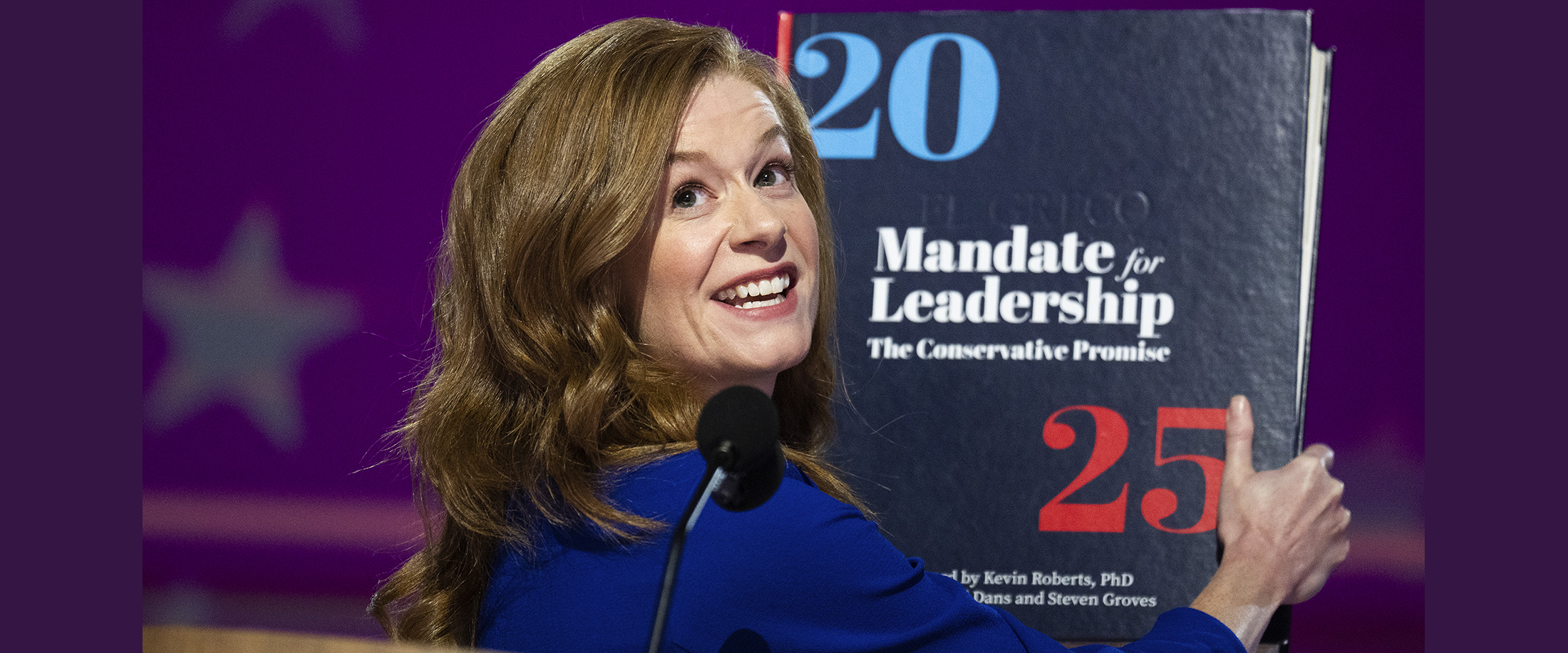Author’s note: This article began as a response to multiple family and friends who engaged me in constructive correspondence about the presidential election.
Dear Kind Family and Friends Who Have Written Me About the Presidential Election:
You’ve sent me questions about my articles and general stance on this year’s presidential election. I’ve listened to your arguments with an open mind to be convinced to your perspective. For the last month, I’ve worked on being thorough and fair in crafting a reply. I’ve gotten feedback from a young adult whose politics I knew nothing about, a conservative Republican policy wonk, a political science professor, a communication professor and various others. All found the response to exhibit fairness and accuracy; some asked for even more information, some of which I added. This response is long because it addresses multiple issues with many layers, and I write in response to several questions from multiple folks. Also, I heard one undecided voter say, “I just need more information.”
So, here goes.

Brad Bull
First, let me thank you for your genuinely kind spirit. It’s a sharp and refreshing contrast to many others who talk to me about politics. Yesterday, a very conservative Republican wrote me privately about a Trump supporter who assails me on social media. He said, “(That person) is more rabid than the people on my feed, and you know that’s saying a lot.” Thank you for not being one of the rabid ones. You are genuinely thoughtful and kind.
I’m going to write with this attitude: The next presidential election is coming down to two votes. You and I are those voters. I want our respectful conversation to examine the evidence for the healthiest way to cast our ballots. To do this, I want to address two domains of consideration: Politics and faith. Of course they overlap, so my discussion will too, using this outline of planks in presidential-campaign platforms:
- Regulations
- Economics (prices/jobs)
- Health care
- Defense/foreign policy
- Veterans affairs
- Crime
- Environment
- Education
- Energy
- Immigration/border
- Abortion
- Relationships (family, same-sex marriage)
Pivotal values
You say you aren’t voting for Trump per se but to prevent the country from becoming things you fear. (When I asked you what you feared, thank you for admitting your fears might be based on assumptions not rooted in evidence.)
We can be afraid of or offended by things that aren’t as bad as what we fear. While teaching a human sexuality class, I once quoted an 80-year-old man who, in the late 1970s, used the f-bomb when he said, “Sex education in school is ridiculous. Hell, even skeeters know how to (f-word).” I then said, “Some of you are offended by his use of the f-word and by my quoting it verbatim. I’m genuinely glad you’re offended by crudity. It also offends me. I want to suggest, though, that if my quoting the f-word is all that bothers you, you’re not offended by enough. You also need to be offended by the fact that one of your fellow human beings reduced your sexuality to that of bugs. As human beings we have far more capacity for creativity, but with that increased relational creativity comes increased responsibility to not act like merely hormone-driven bugs.”
“How can we work together for creative and responsible humanity?”
What I’m saying here is I suspect you’re not afraid of enough and/or you’re afraid of things that will be far worse in the long run under crude leadership. So, how can we work together for creative and responsible humanity?
Regulations
Republicans tend to want little regulation — until it comes to bedroom-type behavior. Democrats tend to favor more regulation — until it comes to bedroom-type behavior. My opinion on this was impacted by my travel to countries with little to no regulations.
In the Philippines, I saw a ferry packed with far more people than flotation devices. Our group was not permitted to use the ferry due to its safety record. We hired a private boat. A few months after I was there, that ferry sank, and scores were killed. Additionally, in 1990, one year after my father, sister and I ate lunch at a hotel in Baguio, an earthquake destroyed the building, killing 80.
In 2011, a follow up story reported: “This densely populated highland metropolis (still) lacks a comprehensive disaster management program and has in fact repeatedly failed to enforce rules that could mitigate disaster. … More than two decades since that 7.7-magnitude earthquake, the country’s summer capital remains unprepared for catastrophes.”
Governments serve the purpose of protecting. Republicans tend to favor more and more police to prosecute crime. There is an accurate assumption of people’s propensity toward evil. According to Christian Scripture, “the love of money is the root of all kinds of evil.” That describes greed. Convicting a slum-lord ferry tycoon after killing dozens of people does the dead no good. Human greed requires regulation to protect people. If the regulation gets carried away, then the regulation itself must be regulated. Drawing that line requires not dogmatic blather but clear-headed collaboration.

(123rf.com)
Economics
In terms of rote politics, secular people who favor Trump tend to say he’ll be best for the economy. In making this argument, most focus on the price of groceries, housing and gas. Obviously, these are too high. Solutions to this will require bipartisan collaboration. Long-term, the economic factors will be far worse if the economy collapses due to the U.S. defaulting on national debt.
The bottom line here is that both parties have done horribly with this. We haven’t had a national surplus in any year since 1957 in the fourth year of Dwight Eisenhower’s eight years as president. That is terrible. It’s important to note here that while Eisenhower was Republican, during his last six years in office, both houses of Congress — the body controlling the purse strings — were controlled by Democrats, and they have controlled Congress the majority of the years since.
“Which candidate is most likely to foster bipartisan cooperation?”
Our American sense of entitlement makes both parties responsible. In my opinion, the biggest step to fixing that would be term limits for Congress, so they aren’t constantly sugar-baiting voters to get reelected. Also, allowing senior members to be committee chairs creates a money-draining favor system.
The question then, is this: Which candidate is most likely to foster bipartisan cooperation? It’s not the one who behaves like a schoolyard bully. It’s far more likely to be the one whose convention featured several people of the other party — even former high-ranking aides of the opponent.

(Shutterstock)
Health care
Trump was virulently opposed to Obamacare, right up until it was popular. He now says he wants to make it better. Here’s where we really start overlapping with faith. What do non-Christians feel about Christianity when Christians promote candidates whose attitude toward health care is that some folks just need to die in a survival-of-the-fittest mentality?
That was Trump’s mentality, embraced by his followers, during the pandemic. He spoke out against vaccination with total ignorance about the concept of herd immunity. He degraded Anthony Fauci, whom President George H.W. Bush called an American hero. And during a press conference, Trump wondered aloud about using Clorox internally. He later said he was joking. People were suffering and dying, and this is something we joke about? Electing him delivers a horrible message to the masses about what Christians care about.
Defense and foreign affairs
We live in a global economy where what is good for others helps sell American products abroad. Donald Trump once shoved a head of state out of the way so he could be closest to the camera. He is a pariah. Who are his friends on the global stage? Putin and other dictators. He boasts of low terrorism attacks during his administration.
But the best interpretation is: Why would our enemies need to do anything that would unite the U.S. against a common enemy when they can just sit back and watch Trump sow discord and let us destroy ourselves?

John McCain
Veterans affairs
During Vietnam combat, Sen. John McCain’s plane was hit by a missile. He ejected and was captured while disoriented and struggling to keep from drowning. He was tortured but never gave up United States secrets. Trump called him a loser. Trump’s own chief of staff said Trump once murmured that soldiers killed in action were suckers. (I mean, why didn’t they just claim to have bone spurs?)
Anyone who calls John McCain a loser or calls fallen soldiers “suckers” is in no way fit to be commander in chief. Yes, there are “Veterans for Trump” just as there were enslaved people who fought for the Confederacy. Some folks have a trauma bond with their oppressors. All the more reason for others to reject the system and free them.
“What Trump said about John McCain is the only reason I need to vote for anyone else.”
What Trump said about John McCain is the only reason I need to vote for anyone else. Any fear of drag queens or the like must override dishonoring veterans by elevating someone who degrades them. Veterans have risked their lives for us; they deserve our courage to protect their honor.
For example:
Imagine a family at the funeral of a fallen United States soldier or sailor. An honor guard member hands them a triangle-folded flag and says, “On behalf of the president of the United States and a grateful nation …” If that family is MAGA Republicans and the president is Kamala Harris, the phrase “on behalf of the president” will only remind them of someone with whom they disagree. But if I am receiving that flag, please don’t impugn my family member’s sacrifice in that moment by calling to mind Donald Trump being on record as calling them a loser for getting captured, injured or killed.
I won’t see our nation as “grateful” if we willingly elected someone who degrades my family member’s sacrifice.
Crime
Harris has been attacked by the far left for being too harsh and by people on the right for being a Democrat. Yet, Trump donated $6,000 to her campaign for attorney general. His daughter Ivanka donated $2,000. She became a prosecutor because she saw safety as a civil rights issue. This was not back in the 1980s. This was in 2011 and 2013. (And Harris donated his money to charity.)
You said she was “on record” as wanting to defund the police. I looked this up. The difference in the titles of the CNN article and the ABC article offer a lesson in loaded versus neutral coverage. CNN said Harris “praised” Defund the Police. ABC quoted her saying, “We have to redirect resources.”
Harris had said the defund-the-police movement “rightly” said that the proportion of funding needed to be shifted. CNN translated that into “praise.” However, a basic step in building consensus is finding what can be affirmed about various positions.
As soon as I heard the “defund” the police verbiage, I thought it was muddle-headed wording at best. “Defund” sounds like remove all funding. Some radicals may be for that. Harris is not. She is working more from the center not to eliminate all funding but to reallocate when possible.
Why reallocate? One of my favorite relationship podcasts is co-hosted by George Faller. George was a New York City firefighter on 9-11. He’s also been a New York City police officer. He’s got a big man card. His fellow firefighters called him “Cupid” because he was going to school to become a family therapist.
Why was he changing careers? He says as a police officer, when he showed up to a domestic dispute, he only had two options: To try to deescalate — only to return later — or arrest someone. He wanted to do something to help prevent conflict/crime. That’s what Harris proposed: To reallocate some funding to focus on prevention of crime.
Our grandparents were fond of saying, “An ounce of prevention is worth a pound of cure.” This is a conversation worth having. It requires not dogmatic bluster but a leader willing to listen to opposing sides and negotiate effective consensus.

(123rf.com)
Environment
Humans are stewards of creation. “I am lord of my domain.” How do good lords have dominion? Do they fill their house with noxious gas and dump poison into the soil? No, of course not.
Having dominion means being caretakers. Many Christians have the attitude that “God is in control,” so we don’t need to worry about pollution. Yet they worry about images of drag queens rather than saying, “Oh well, God’s coming soon.”
This is backward at best.
“In Trump’s first term, he gutted environmental policy.”
In Trump’s first term, he gutted environmental policy. I was a bit close to one of those policy changes. At a university where I was teaching, a nonacademic administrator — with motivations tainted by a conflict-of-interest donation — had a student do a “study” that concluded a certain kind of truck system was just as environmentally safe as a more modern one. (For non-pay-wall info see here, here and here.) The research was garbage, and it was wrongly used by a Tennessee politician to put one business’ bottom line over clean air. (Fortunately, a regulatory body intervened.)
It’s wrong to say we can’t have both economic and environmental stewardship. The imbalance toward profits is motivated by greed, and that is not a Christian value. Nothing else matters if our world is unfit to live in. And again, from an evangelism perspective, when Christians oppose being good stewards, it comes off as selfish when Christians sound like this: “I’m saved, so the health of the planet doesn’t matter. What matters most is having more money now than a healthy ecosystem in the future.”
Education

John Leland
John Leland was a Revolutionary-War-era Baptist pastor in Virginia. Regarding opposing British rule, he said he hoped patriots not be found shot in the back — aka retreating. He also was way ahead of his time in opposing enslavement. He also spoke the words I quote at the end of all my email: “It is more essential to learn how to believe than to learn what to believe. …Truth is in the least danger of being lost when free examination is allowed.”
Yes, the Left often has an excessive and short-sighted “anything goes” naiveté. When McMinn County Tennessee tried to eliminate Maus from the eighth-grade curriculum, many of my friends on the left equated this with book banning. But banning a book and making sure material is age appropriate are two different things. I pointed out that ancient Hebrews required someone to be 30 years old to read Ezekiel. And Viktor Frankl’s book about the Holocaust — Man’s Search for Meaning — has a “young adult” edition.
I recently heard a podcast that analyzed the claim that Protestant countries have better economies. The analyst pointed out that the cause-and-effect relationship was not clearly linked to better religion and work ethic. Rather, (according to Sascha Becker’s research summarized by public radio here), once Protestantism took the Bible from the exclusive domain of the clergy, common people had more motivation to teach reading. As countries became more literate, they became more economically productive.
“Facilitating education is the single most important function of a government’s promotion of its people’s welfare.”
Facilitating education is the single most important function of a government’s promotion of its people’s welfare. Now, who will better promote education: A man who spends all day on Twitter, poo-poos education and wants to eliminate the Department of Education? Or someone whose vice president and his wife are beloved teachers?
Honestly, now. Not: “But I don’t want my kids learning about transgender people.” There are other ways to address that than voting for someone you admit engages in buffoonish behavior.
Energy
It’s silly how often people post photos of gas prices under various presidents. Presidents have little impact on the price of gas other than having some impact on drilling for oil and placement of pipelines. But, again, without a clean world, we’ve got nothing.
We have to have balance, and Trump is a short-sighted extremist. Additionally, let’s look at it this way. Many MAGA types go on and on about a “Deep State.” To the extent there is some kind of subversive power, it’s far more likely to be money-grubbing oil magnates. They know there are likely to be fewer regulations under a Republican administration.
If you are in control of production and prices, and you want to increase the likelihood of the president you want, what’s a good way to do that? Yeah, drive up prices during the administration of the president you don’t want and lower them during the one you do.
This is not a stretch at all because we know Enron did this with electricity prices and negatively impacted the sitting governor of California, a Democrat, Gray Davis (see here and here). Davis was recalled, leading to the election of Republican Arnold Schwarzenegger. (You might remember him for getting his housekeeper pregnant the week after one of his children was born and admitting it to his wife years later when she confronted him the day after he left office.)
Let’s please not be puppets with Big Oil’s hand up our behinds — which is what we do if the price of gas steers our voting instead of higher values like commitment to honesty and integrity rather than vomiting lies and committing felonies.

Demonstrators lock arms during a direct action at a Secret Service vehicle checkpoint entrance to the White House grounds on June 15, 2021. (Photo by Bryan Olin Dozier/NurPhoto via AP)
Immigration/border
This is one area where I differ greatly from my more liberal friends. Some of my friends seem to favor open borders. They mean well but, in my opinion, take too far out of context the Statue of Liberty’s invitation to the “huddled masses.” As a family therapist, I work with families to have healthy boundaries — not too tight, not too loose. The challenge is finding “just right.”
Another key factor in healthy families is realizing that how we do things is at least as important as what we do. One family can have a nasty fight about taking out the trash. Another family can have constructive discussion about the same issue. The what is the same; the how is healthy in the second.
In 2015-16, I was open to the idea of the necessity of a wall. But I was, am and will ever be stringently opposed to the way Trump was selling it. It is patently wrong to refer to the huddled masses as “rapists” and “thugs.” When Trump said Mexico was sending their worst, while he may have tried to spin it differently later, he was saying all Mexican immigrants are bad. However, after a white supremacists’ rally in Charlottesville, Va., he said there were “good people on both sides.” But he could not bring himself to acknowledge any good people coming from Mexico.
“To vote for Trump is not just to vote for what he wants to do but how he does it.”
To vote for Trump is not just to vote for what he wants to do but how he does it. How can you look in the eyes of the people who are likely building your carport and picking your fruits and vegetables and feel like a Christian witness to them? Wait, they likely are Christians, but others are watching how Christians treat them with their votes.
What was the effect of Trump’s vitriolic type of leadership? In 2016, a predominantly white high school was playing a predominantly Hispanic high school in volleyball. When the predominantly white high school fell behind, many of the students started chanting, “Build the wall!”
In looking up this story, I found others. Very disturbingly, the day after the 2016 election, at a middle school in Michigan, students were blocking the paths of minority students and, in the cafeteria, started chanting “Build the wall,” leaving some children in tears.
That is a disgusting way to behave nurtured by a nasty man appealing to bigotry.
The problem, then, is not Trump but whatever part of us is attracted to such leadership. For Christians to hitch their wagons to this behavior sends a deplorable message. To reduce all the voting to abortion (addressed below) ignores that there are many ways to oppose abortion while voting for someone who promotes the sanctity of the life of all God’s children across the lifespan.
“Trump didn’t drain the swamp because he is the swamp.”
You said Harris is “on record” as favoring “open borders.” In late August 2024, I did a search using “Harris ‘open borders.’” With one popular search engine, I found nothing. With another, I found a few articles but none of them had Harris saying she favored open borders, just folks saying she said she was. (How would you like being attributed with saying something you didn’t say?)
You said you favored Trump in 2016 due to his promise to “drain the swamp.” (That’s a good motivation on its face.) You further pointed out that Harris has vacillated on various positions (like fracking). This is a legitimate criticism of all politicians. There needs to be freedom to change our minds, but it looks bad when it seems obviously motivated by pandering for votes. However, since Trump clearly does the same thing, this criticism constitutes an off-setting penalty.
But, drain the swamp? Most recently, Congress came up with a bipartisan plan to address border security. Why did it fail? Trump didn’t want the Biden administration to get credit for effective leadership. Trump didn’t drain the swamp because he is the swamp — creating gridlock for personal gain.
Your own reasoning demands voting for someone who has demonstrated an ability to work across the aisle — if only it were not subverted by the swamp.

(Shutterstock)
Abortion
Since the 1970s, Christianity has been co-opted by conservative politics in general and abortion in particular. This is driven more by political power and sociology than genuine spirituality. (No, I’m not saying abortion opponents aren’t spiritual — but this particular passion does not reflect the fruits of the Spirit.)
Let’s connect the dots. First, we know there’s a rural/urban divide in United States politics. Rural folks tend to be and vote conservative vs. liberal by roughly a 60/40 split. That’s reversed in big cities.
A 2020 study (summarized in a University of Washington article) provided evidence of what makes intuitive sense: Rural people tend to be more traditional and like to stay in a traditional area; people who like change and diversity tend to gravitate to cities.
“As Falwell’s popularity was growing among those who like his good-old-days mentality, something happened.”
In 1956, Jerry Falwell was explicit when he started the TV show The Old-Time Gospel Hour. It was focused on the past and linked old-time religion to true faith. As Falwell’s popularity was growing among those who like his good-old-days mentality, something happened, and that’s the next dot.
First, let’s read a contextualizing quotation from a 2014 article titled “The Real Origins of the Religious Right”:

Jerry Falwell gestures while talking with President Reagan after a candle lighting ceremony in support of prayer in schools on Sept. 25, 1982 (AP Photo/Charles Tasnadi, file)
In 1971, delegates to the Southern Baptist Convention in St. Louis, Missouri, passed a resolution encouraging “Southern Baptists to work for legislation that will allow the possibility of abortion under such conditions as rape, incest, clear evidence of severe fetal deformity, and carefully ascertained evidence of the likelihood of damage to the emotional, mental, and physical health of the mother.” The convention, hardly a redoubt of liberal values, reaffirmed that position in 1974, one year after Roe, and again in 1976.
Of course, contemporary Southern Baptists will point out this resolution came before the “conservative resurgence” and assert this position demonstrates the need to purge liberalism. However, the record tells a different story about the relationship between fundamentalism and abortion. As Randall Balmer, an Episcopal priest and church history professor, stated in his article:
When the Roe decision was handed down, W.A. Criswell, the Southern Baptist Convention’s former president and pastor of First Baptist Church in Dallas, Texas — also one of the most famous fundamentalists of the 20th century — was pleased: “I have always felt that it was only after a child was born and had a life separate from its mother that it became an individual person,” he said, “and it has always, therefore, seemed to me that what is best for the mother and for the future should be allowed.”
So, what happened? How did abortion become a rallying issue for conservatives? Balmer’s article points out that for years, Paul Weyrich — cofounder of the Heritage Foundation conservative political think tank — had been, by his own admission, trying to see what would get conservatives riled up.
Traditionalists had lost the battle to keep racial segregation. In response, the churches of Christians who didn’t want their children going to schools with Black children had started creating private schools. However, in June 1971 a federal court ruled that private schools that discriminate on the basis of race — as Bob Jones University did in South Carolina — could not claim tax-exempt status. This deeply angered traditionalists.
“He offered them a new issue to rally around not for a spiritual win but for a political win.”
Now that traditionalists were frustrated about losing the segregation battle, they were ripe to follow Weyrich’s lead. He offered them a new issue to rally around, not for a spiritual win but for a political win.
Abortion, which arguably was out of hand as elective birth control, became that rallying issue for political power for traditionalist evangelicals who had, prior to segregation losses, not widely seen it as an issue.
Just as evangelicals opposed alcohol for good reasons, using political power to eliminate it failed, and using prohibition to eliminate abortion has and will fail by driving the practice to an unsafe underground and by causing harm to or death of mothers in dangerous pregnancies. Other compassionate measures like safe and effective contraception are more effective on this issue.
On its own, however, to argue that the anti-abortion movement is wrong because of how it started commits the genetic fallacy. Just because modern opposition to abortion had sketchy beginnings doesn’t make abortion OK.
Catholics had been opposing abortion long before Protestants jumped on the bandwagon. But to use that as an argument for voting against abortion rights commits the tradition fallacy. The point here is that the history of using it as a political tool does call into question the wisdom of making abortion the sole voting issue above all others.
“The reality is that many folks are morally opposed to abortion but oppose making it illegal.”
The reality is that many folks are morally opposed to abortion but oppose making it illegal. How? Because legal abortion is safer than the illegal abortions that go on when it’s not legal.
Also, it’s odd that so many people who insist on literal interpretation of the Bible are opposed to all abortion. Why? Because a literal reading of the Bible doesn’t promote the notion that life begins at conception. That explains W.A. Criswell’s statement cited above. In at least two places in Scripture, it is clear that ancient Hebrews saw personhood starting at birth upon first breath.
Exodus 21 — the chapter after the Ten Commandments — stipulates what happens if two people are fighting and cause a miscarriage: Those fighting were merely fined an amount of money requested by the father and approved by the town council. But if the mother was killed the fighters were executed.
The other example comes in Numbers 5, where there is a description of a bizarre ritual for determining if a married woman is pregnant from an adulterous relationship. A suspicious husband could bring his wife before the priest. Her hair was disheveled, and she was given a concoction of water and dust from the floor. If she had been faithful, her pregnancy would continue. If not, her womb would discharge. This makes that water and dirt an abortifacient.
These examples show that Hebrew Scripture (the Old Testament) does not equate the life of a fetus and a born person. Despite this view reported in the Bible, I don’t think we modern folk should say a late-term fetus is strictly different from a born child the way ancient Hebrews believed. I find elective abortion after viability to be as repugnate as killing a born child — just as repugnant as endangering a woman who deserves the autonomy over her body as long as she is carrying cells that can’t live without her or that threaten her health.
Thus, this is a complicated issue. The atmosphere that emerged under the first Trump administration has created a host of pain, putting women’s health and lives in danger.
As someone who used to be a hardcore conservative, I was raised to fear premarital sex due to it causing STIs and pregnancies. Abortion eliminated one of the barriers to scaring folks away from extramarital sex. The same applied to making contraception available.
If you’re a Protestant and you want to impose your beliefs on abortion, imagine if a traditionalist Catholic majority wanted to make contraception illegal. You wouldn’t want that would you?
“Imagine if a traditionalist Catholic majority wanted to make contraception illegal. You wouldn’t want that would you?”
Given the grey areas of when life begins, and given the complications of where, when and with whom abortion is moral and/or medically necessary, it’s best to leave that agonizing decision to women and their doctors. If you wish, make a verbal argument to convince someone to keep their baby. But when it comes to the freedom to make moral choices, “Do unto others as you would have them do unto you.”
The best path to that is by voting for the candidate who is committed to keeping that choice between women and their doctors.

(123rf.com)
Relationships
I know lots of folks who want a return to a Leave it to Beaver kind of world. It never existed. (See Stephanie Coontz’s book The Way We Never Were.)
Some say they deplore a world with families in so much conflict that many resort to violence. For instance, there was the horrible case where a son killed his own brother. That night his parents decided to try to sleep. The mother said, “Good night, Adam,” and the husband said, “Good night, Eve.” Sarcasm aside, the fact that family conflict has always gone on is no reason not to try to promote healthy families.
What’s the best way? We need balance — neither far right conservative with its rigid boundaries nor far left liberalism with its fluid boundaries.
As a family therapist, much of the pain I see in families is rooted in sentimentality. Men and women often feel stuck in inflexible roles they feel like they ought to fulfill due merely to tradition. Fathers are obsessed with having certain types of sons — to the detriment of their daughters and gay sons, drowning in rejection.
Something that is not changing is dying. Healthy families change as they grow. So must our society.
“Healthy families change as they grow. So must our society.”
Republican Congresswoman Nancy Mace of South Carolina rightly boasts of being the first female to graduate from The Citadel. She had that opportunity because of progressives who fought antiquated tradition. Our vote needs to promote healthy progress rather than reverse it as Project 2025 seeks to do by overturning same-sex marriage.
If you are afraid legalized same-sex marriage will increase the odds of your children or grandchildren being gay, then remember this: If some of our relatives were in charge, your children wouldn’t have the choice to drink alcohol because some of our family would make it illegal. And if you’re worried an outbreak of “gay” will lead to insufficient reproduction, are you also going to ban Catholics from becoming priests and nuns?
If you think that’s a silly argument, that’s the point. Societies rise and fall not due to different kinds of relationships you might personally prefer but because the poor and oppressed grow weary of living under oppression.
There’s no honest way to conclude who is most likely to be a dictator comparing Trump to Harris.
That brings us to the ultimate value on which to vote.
Pivotal value
I can’t say it better that David Gushee recently said it:
As a Christian ethicist, I believe the most significant issue in the election continues to be the defense of democratic norms.
These norms include respect for free and fair elections, the rejection of political violence, and the peaceful transfer of power. No specific policy issue contested within a democracy is as important as whether the democracy itself survives.
Trump clearly tried to interfere in the peaceful transfer of power on January 6, 2021. There were proper channels to challenge results in Georgia without pressuring officials under the table to find 11,000 votes.
Regarding January 6 itself, Sen. Josh Hawley wasn’t running because he felt safe, and even the most pro-Trump but honest supporter must admit Trump’s waiting three hours to intervene — after many of his cabinet had resigned — was at least grossly negligent and a dereliction of duty by a commander in chief.
Two days after the attack, Fox News called the event an “unprecedented breach.” The article concluded with a quote from an “on-the-ground, pro-Trump leader” who said, “We want to follow our commander in chief, and we are watching and waiting for his next action.” After the attack, this guy still didn’t hear a clear “no” from Trump.
“Trump might eliminate your discomfort, but that comes at the expense of many people’s freedom and employment.”
For heaven’s sake: the school district chief of police in Uvalde, Texas, was fired and then indicted for the 77 minutes it took to take decisive action. You can’t say Bill Clinton should have been convicted for lying about a consensual sex act with an adult in the White House (which I believe he should have been) but not hold Trump accountable for gross negligence in stopping an assault on the Capitol, the rule of law and democracy itself.
A vote for Trump either endorses at least the threat of dictatorship or, at best, ignores the feelings of those neighbors who reasonably fear it.
You say you fear the world Democrats will bring. Based on my asking many folks what they fear, that world is one where they merely feel uncomfortable in the midst of change. Trump might eliminate your discomfort, but that comes at the expense of many people’s freedom and employment. Voting for Harris allows us to go on reasonably negotiating boundaries in a changing world.

Michigan State Sen. Mallory McMorrow holds a book of the Heritage Foundation’s Project 2025 during the Democratic National Convention at the United Center in Chicago, Ill., on Monday, August 19, 2024. (Tom Williams/CQ Roll Call via AP Images)
Project 2025
Speaking of boundaries, much has been made of Project 2025. While Trump has publicly distanced himself, his “fingerprints” are all over it. (He said we wouldn’t believe what his investigators were finding in Hawaii about Barrack Obama’s birth. But he never presented any information. He was lying then, and he is lying now when he pretends he won’t implement Project 2025.)
What’s the problem with it? Of all the many issues, in my view, the most serious is the plan to convert 50,000 merit-based civil servant jobs to at-will political appointments. Spiritually speaking: “Do unto others as you would have them do unto you?”
Is there anything Golden Rule about firing people who are doing nonpartisan work because they won’t swear allegiance to your party? Politically speaking, this a recipe for a murkier swamp. Rather than having people with institutional memory, every time parties change they would just be tossing out the folks with experience.
“Conservatives spread conspiracy theories about ‘Deep State,’ but this part of Project 2025 seeks to create a deep state — just controlled by them.”
Furthermore, it’s hypocritical. Conservatives spread conspiracy theories about “Deep State,” but this part of Project 2025 seeks to create a deep state — just controlled by them. Conservatives might say, “Sounds like a good plan.”
How childish to focus on “what’s good for me and my tribe” rather than on what’s best for our E Pluribus Unum.
Project 2025 reflects a dictatorial plan in the hands of one who repeatedly has expressed admiration of dictators and the aspiration of the U.S. having a president for life like China. But it’s not fair to blame Trump. He only exists politically because so many Americans like his style, like many teen males like having their pants around their thighs. It feels cool to them but makes it hard to walk.
As researcher Matthew MacWilliams’ 2020 article was titled, “Trump is an authoritarian. So are millions of Americans.” What could be further from following the model of Christ?
We do not promote democracy by voting for an anti-democratic person. We don’t follow Christ by anointing a playground bully as our king. Christians’ support for Trump deeply harms the gospel message.
That this support is rooted in lust for power is evidenced in James Dobson’s comments in 2016 calling Trump a “baby Christian” (see here and here).
We grew up learning the “ABCs” of becoming a Christian. The “A” says that the first step is to “admit I am a sinner.” Yet Trump rhetorically asked in 2015, “Why do I have to repent or ask for forgiveness if I am not making mistakes?” Did he recant on that by 2016? He was asked in 2016 and gave a long, rambling answer with anything but an admission of being a sinner. No, I don’t believe someone has to be a Christian to be president of the United States. But Christians need to be seen as honest people.
Finally, I again want to thank you for your kind spirit. I don’t expect to change the minds of the most radicalized of Trump supporters. I’ve been open to you changing my mind based on your observations. As a therapist, I have clients from across the political spectrum. I respect them all. I can work with anyone who can work with me.
Which of our presidential choices is most likely to foster not antagonism but cooperation? In your heart, you surely know that. At the very least, take Pascal’s wager: If you are wrong about Trump not becoming a dictator, we stand to lose far more than if we elect someone who could be voted out in four years.
I hope you will honestly consider all these points and do what’s best not just for you but for all of us — here in the United States and around the whole of God’s created world and peoples.
Brad Bull made a commitment to ministry at age 15 and was ordained as a Baptist minister at age 25. He has served as a hospital chaplain, pastor, professor and therapist. As a minister he identifies as an independent and has voted for Republicans and Democrats and independents.


